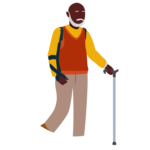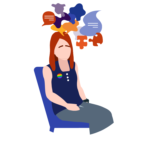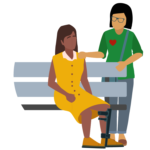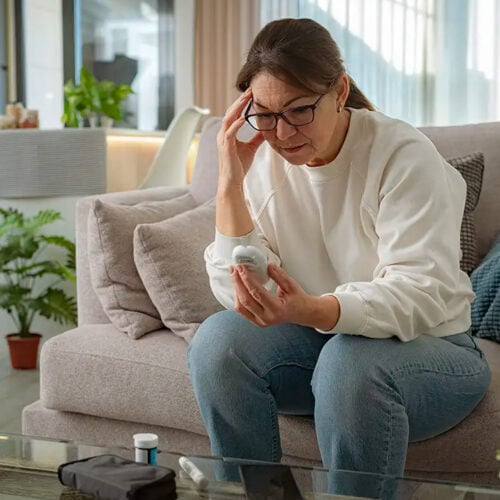Is What I am Experiencing After My Stroke Normal?
Although there are some common side effects and impairments after having a stroke it is important to recognize everyone’s experience is unique. You may have symptoms and impairments that other survivors do not have.
There are three major areas that stroke impacts:
Physical Changes
Typically, physical changes can be traced to the location in your brain that was most impacted by your stroke. Depending on where the blood supply was affected in your brain you may experience some of the following physical changes:
- Fatigue
- Vision changes
- Challenges moving around due to changes in balance and coordination
- Weakness on one side of the body
- Difficulty swallowing
- Too much muscle tone (spasticity) or too little muscle tone (flaccidity), making them hard to move
Early rehabilitation can help you overcome some of your physical impairments. You can read more about what to expect related to recovery and rehabilitation here.
Cognitive Changes
You may also have changes in how you think and process information. These changes may be referred to as cognitive changes and can include the following:
- Difficulty paying attention or concentrating
- Trouble problem-solving
- Difficulty remembering things
- Difficulty recognizing things
- Trouble understanding what someone said
- Challenges saying what you are thinking
Cognitive changes can be some of the most frustrating impairments after a stroke. It is important to recognize it is normal to be frustrated when you first discover you may be experiencing these challenges.
Emotional Changes
Because stroke affects your brain, it can also affect how you experience emotions. Many survivors experience a range of feelings or emotions after a stroke. It is estimated that 60% of stroke survivors experience depression and 67% experience anxiety. Some feelings you may experience include:
- Stress
- Sadness or disappointment
- Frustration
- Irritability
- Carelessness
- Confusion
- Anger
- Depression
- Anxiety
- Grief
At Kandu, we understand the overwhelming nature of stroke and are experienced in supporting stroke survivors as they begin their recovery journey. Your Kandu Navigator can help you identify the symptoms you are experiencing, how to address them and assist you in determining next steps to support your recovery.






